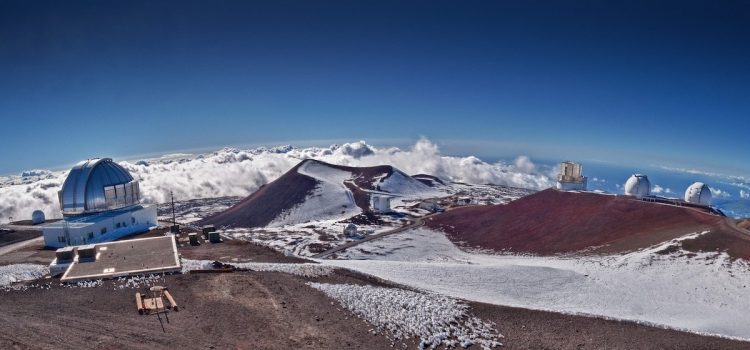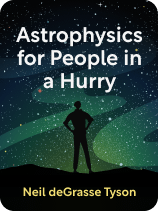

This article is an excerpt from the Shortform book guide to "Astrophysics for People in a Hurry" by Neil de Grasse Tyson. Shortform has the world's best summaries and analyses of books you should be reading.
Like this article? Sign up for a free trial here.
Why is astrophysics important? In the big scheme of things, how special are Earth and human beings?
Neil deGrasse Tyson shows how astrophysics has stripped humanity of its archaic belief that we hold a special place at the center of the universe. Still, it affirms what we share in common and provides a vast new frontier for discoveries that may transform how we understand reality.
Read more to understand this perspective from Tyson’s book Astrophysics for People in a Hurry.
Why Is Astrophysics Important?
Astrophysics is the branch of astronomy that applies discoveries in chemistry and physics to observations of the stars. Of all the sciences, astrophysics may seem the farthest removed from our everyday lives. So, why is astrophysics important? Tyson argues that the study of the cosmos provides the human race with a crucial sense of perspective while answering our fundamental drive to understand where we came from.
We humans like to think that we’re special, but Tyson describes how, over and over, science knocks us off whatever pedestal we climb on. Once, we believed that the sky revolved around us. Over time, astronomers learned that the Earth is just a planet, and that the sun is only one among the billions of stars in our Milky Way galaxy. Then, we discovered there were other galaxies out there—more, in fact, than there are stars in our own. And, what if the theories of the multiverse are true, and our own universe is but one among many? Where does that put us in the cosmic scheme of things?
(Shortform note: Astronomy’s habit of demoting the Earth has a long and storied history. Nicholas Copernicus wrote that we’re not the center of the universe in 1543, but the same idea had been proposed before by Aristarchus of Samos in the 3rd century BC. The vast size of our galaxy was discovered in 1918 by Harlow Shapley, who also determined that we’re nowhere near its center, but are located halfway to the edge. In 1924, using Shapley’s methods, Edwin Hubble determined that our galaxy’s not alone—it’s only one of many in the universe.)
Better than any other science, says Tyson, astrophysics teaches humility. It frees us to know that we’re not the center of the universe; the study of the cosmos gives us a vital ego-check. And, just as the Earth’s mountains and valleys shrink into nothing when seen from outer space, so do the things that divide us as a species. That in itself should be enough to reaffirm the value we have to each other—that, in the grand scheme of things, our differences are trivial compared to the things we have in common as a species.
(Shortform note: The humbling psychological impact of viewing our planet in its cosmic perspective has been vividly described by many astronauts after seeing the Earth for the first time from space. Michael Collins, the command module pilot for Apollo 11, has said that he was struck by the fragility of our world. Edgar Mitchell on Apollo 14 said that looking back on earth gave him an “global consciousness” that made humanity’s divisions seem petty. Tyson’s predecessor Carl Sagan repeatedly touted the beneficial, humbling, and unifying effect of understanding that we’re only a small, ephemeral part of a wider universe.)
Exercise: Consider Your Place in the Cosmos
The universe is far bigger than a human mind can possibly grasp, yet astrophysicists like Tyson aren’t troubled by our cosmic insignificance. Rather, he says, understanding our place in the universe gives us perspective on our lives and should teach us to value each other and our fragile world.
Imagine looking down from an airplane so high that it’s hard to make out roads and cities. Now imagine pulling even farther away and looking down on Earth from the edge of space. You see how thin the atmosphere is and how indistinct are any signs of human life. And yet, below you are billions of people. From this height, does it matter what language they speak, what they had for breakfast, or how much money they have? When looking down on the human race from this distance, how does that change how you think about cultural differences?
Consider that a human life is roughly 75 years. That’s 1/7 of the time since contact was made between Europeans and the Americas. It’s 1/20 of the time since the fall of Rome, and 1/60 of the time since the Egyptians built the Great Pyramid of Giza. Now pull back to the cosmic scale: One human life is 1/3,000,000 of the time it takes our sun to orbit the Milky Way, and 1/200,000,000 of the age of the whole universe. Given that we share a tiny slice of time with the rest of the human race alive today, how does that affect how you value that time? How might you better share it with other people, even those who may not hold the same beliefs?
Imagine looking up at a clear night sky, far from any lights that would block out the stars. Consider also that what you can see is only a fraction of everything out there. Most of the light is invisible to our eyes. Most of the matter and energy above can’t be detected by our strongest instruments. Remind yourself that the vast majority of the cosmos has yet to be discovered. How does that make you feel about the future, and what new discoveries do you hope we make next?

———End of Preview———
Like what you just read? Read the rest of the world's best book summary and analysis of Neil de Grasse Tyson's "Astrophysics for People in a Hurry" at Shortform.
Here's what you'll find in our full Astrophysics for People in a Hurry summary:
- Neil deGrasse Tyson's simple explanations of some of the mysteries of the cosmos
- Why everyone should understand where we fit in the universal scheme
- Why humans need to climb off their pedestals






